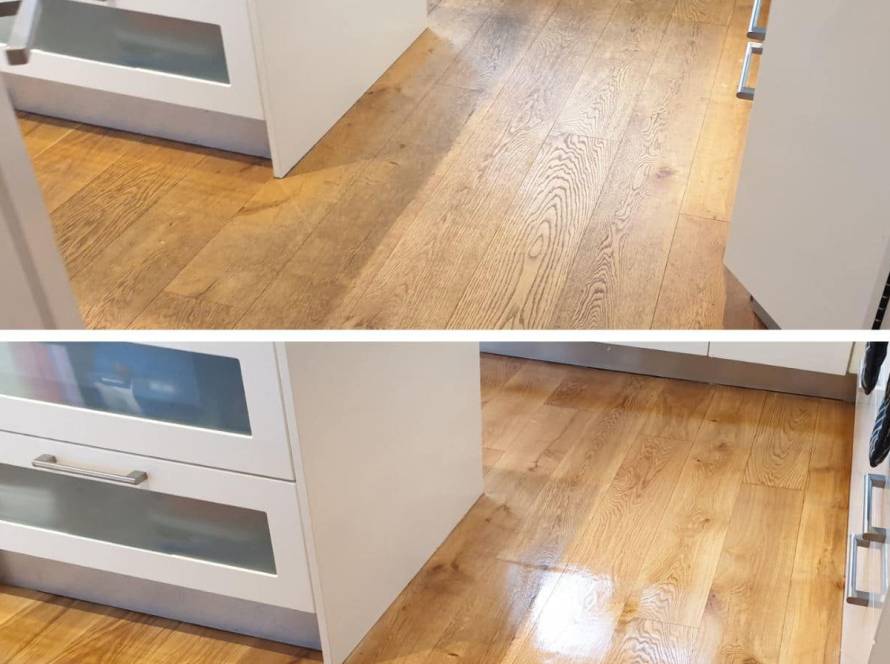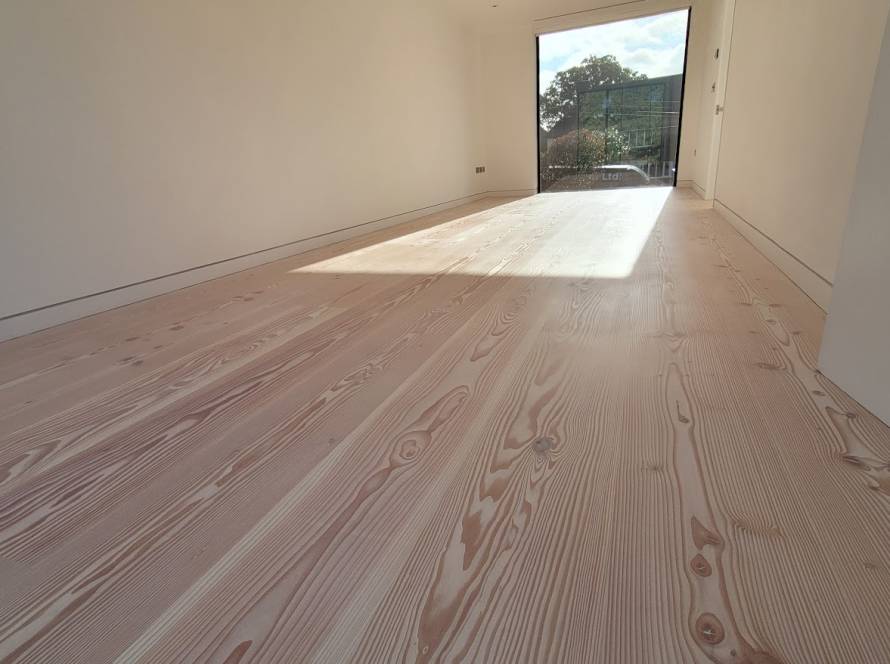When it comes to choosing a finish for your wood floors, the choice between oil and varnish is crucial. Each option has its own unique benefits and drawbacks that affect both the appearance and durability of your flooring. At Alpha Floor Sanding Ltd, we work with high-quality products from leading manufacturers such as Bona, Loba, Osmo, and Junckers to ensure the best finish for your needs. During our initial site visit, we’ll assess your floor and recommend the ideal product to protect and enhance your wood floor.
Understanding the Difference Between Oil and Varnish Finishes
The primary difference between oils and varnishes is their method of protection:
- Oil Finish: Penetrates deep into the wood, providing protection from within and enhancing the wood’s natural grain.
- Varnish Finish: Creates a protective, durable layer on the wood’s surface, offering high resistance to scratches and moisture.
Choosing the right product and maintaining it properly is essential to extend the lifespan of your wood floors.
Pros and Cons of Varnishes for Wood Floors
Varnish is a popular choice for high-traffic areas or spaces that require easy maintenance and high durability.
Pros of Varnish:
- Long-Lasting Protection: Varnishes are highly durable, making them suitable for areas with heavy foot traffic.
- Easy Maintenance: Varnished floors are easy to clean and require less frequent upkeep.
- Quick Drying: Most varnishes dry quickly, allowing you to walk on the floor sooner.
Cons of Varnish:
- Plastic Feel: Varnished wood can feel less natural to the touch, as the finish sits on the wood’s surface.
- Challenging Repairs: Touch-up repairs on varnished floors can be difficult, especially if the finish is scratched or damaged.
- Limited Colour Options: Coloured varnishes are less durable, and a separate product is needed if you want to stain the wood.
Pros and Cons of Oil Finishes for Wood Floors
Oil finishes are favoured for their natural look and feel, bringing out the wood’s unique grain pattern.
Pros of Oil:
- Natural Look and Feel: Oil penetrates the wood, enhancing the grain and giving a softer, more natural touch.
- Easy Touch-Up Repairs: Oiled floors are easier to repair locally, allowing for quick touch-ups without a full refinish.
- Superior Colour Quality: Coloured oil brings out the natural beauty of the wood better than varnish.
Cons of Oil:
- Higher Maintenance: Oiled floors require regular maintenance, such as polishing or reoiling every year, to maintain their protection and appearance.
- Longer Drying Time: Oil finishes take around 12 hours to dry, which can extend the project timeline.
- Less Durable: Oils generally offer less surface protection than varnishes, making them more susceptible to wear in high-traffic areas.
Hybrid Oil-Varnish Finishes: Best of Both Worlds
If you prefer the natural look of oil but need the durability of varnish, a hybrid oil-varnish solution might be the answer. Hybrid oils provide the rich, warm look of an oiled floor while adding a varnish topcoat for added durability. This process does take longer due to drying times and may cost slightly more, but it’s ideal for those wanting both the beauty of oil and the longevity of varnish.
FAQ: Common Questions About Oil and Varnish Finishes
Q: I had an oiled floor installed from the factory, and it absorbs water and stains. What can I do?
A: Factory-applied oil finishes are often less durable and may not withstand high-traffic areas like kitchens or hallways. At Alpha Floor Sanding Ltd, we use premium oils that offer greater protection. With proper maintenance, our high-quality products will keep your floors looking beautiful for years.
Q: Can I get a flat, matte, natural look with varnish instead of oil?
A: Yes, you can achieve a natural matte appearance with ultra-matt varnishes. This gives you the look of an oiled finish but with the enhanced durability of varnish, making it a great choice for those wanting both aesthetics and resilience.
Q: I have a pet. Is oil a good option for me?
A: For pet owners, we recommend a High Traffic varnish. Varnish provides a stronger protective layer on the surface, which can withstand claws and spills better than oil.
Choosing the Right Floor Finish: Oil or Varnish?
The choice between oil and varnish largely depends on your specific needs, lifestyle, and aesthetic preferences. Here’s a quick overview to help guide your decision:
- For high-traffic areas or pet-friendly floors: Varnish is recommended due to its durability and easy maintenance.
- For a natural, rustic look with easy touch-ups: Oil is ideal, as it enhances the wood’s grain and allows for spot repairs.
- For a blend of aesthetics and durability: Consider hybrid oil-varnish solutions, which offer the beauty of oil and the toughness of varnish.
At Alpha Floor Sanding Ltd, we bring over 30 years of expertise to floor refinishing and use only the best products from trusted brands like Bona, Loba, Osmo, and Junckers. Our goal is to provide a floor finish that meets your needs and enhances the beauty of your wood floors.For more information on our wood floor sanding, oiling, and varnishing services across London, Kent, and Surrey, contact Alpha Floor Sanding Ltd to schedule a consultation. We’re here to help you choose the ideal finish for your space and ensure that your wood floors stay beautiful and protected for years to come.





